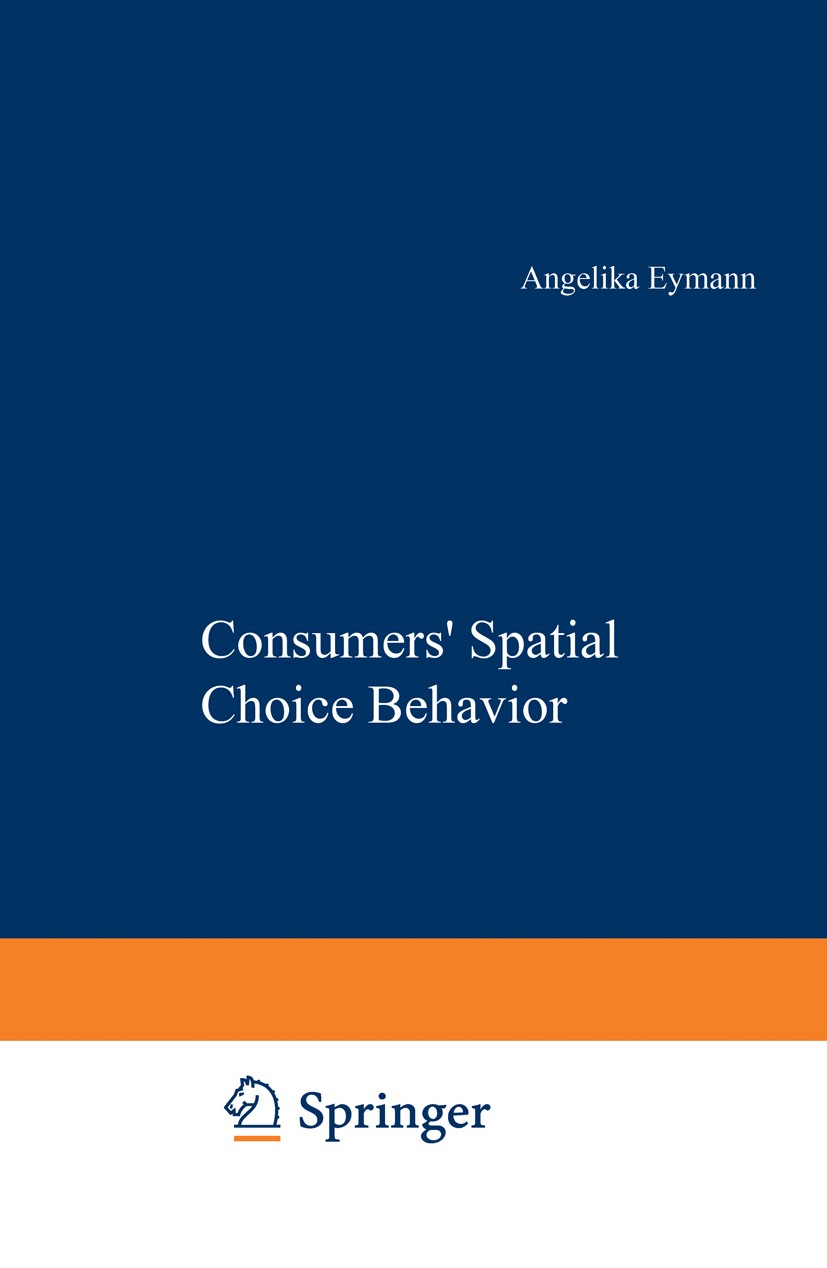| 書目名稱 | Consumers’ Spatial Choice Behavior | | 編輯 | Angelika Eymann | | 視頻video | http://file.papertrans.cn/237/236224/236224.mp4 | | 叢書名稱 | International Economics and Institutions | | 圖書封面 |  | | 描述 | Migration, commuting, and tourism are prominent phenomena demonstrating the political and economic relevance of the spatial choice behavior of households. The identification of the determinants and effects of the households‘ location choice is necessary for both entrepreneurial and policy planners who attempt to predict (or regulate) the future demand for location-specific commodities, such as infrastructure, land, or housing, and the supply of labor. Microeconomic studies of the spatial behavior of individuals have typically focused upon the demand for a single, homogeneous, yet location-specific com- 2 modity (such as land! or housing ) or their supply of labor3 and investigated the formation of location-specific prices and wages in the presence of transportation and migration costs or analyzed the individual-and location-specific character- istics triggering spatial rather than quantitative or temporal adjustments. In contrast to many theoretical analyses, empirical studies of the causes or con- sequences of individual demand for location-specific commodities have often considered several "brands" of a heterogeneous good that are offered at various locations, are perfect substit | | 出版日期 | Book 1995 | | 關(guān)鍵詞 | Econometrics; Microeconomics; Mikro?konomie; Regional Science; Regionalwissenschaft; agents; ?konometrie | | 版次 | 1 | | doi | https://doi.org/10.1007/978-3-642-50325-2 | | isbn_softcover | 978-3-7908-0852-0 | | isbn_ebook | 978-3-642-50325-2 | | copyright | Springer-Verlag Berlin Heidelberg 1995 |
The information of publication is updating

|
|
 |Archiver|手機(jī)版|小黑屋|
派博傳思國(guó)際
( 京公網(wǎng)安備110108008328)
GMT+8, 2025-10-12 04:41
|Archiver|手機(jī)版|小黑屋|
派博傳思國(guó)際
( 京公網(wǎng)安備110108008328)
GMT+8, 2025-10-12 04:41


